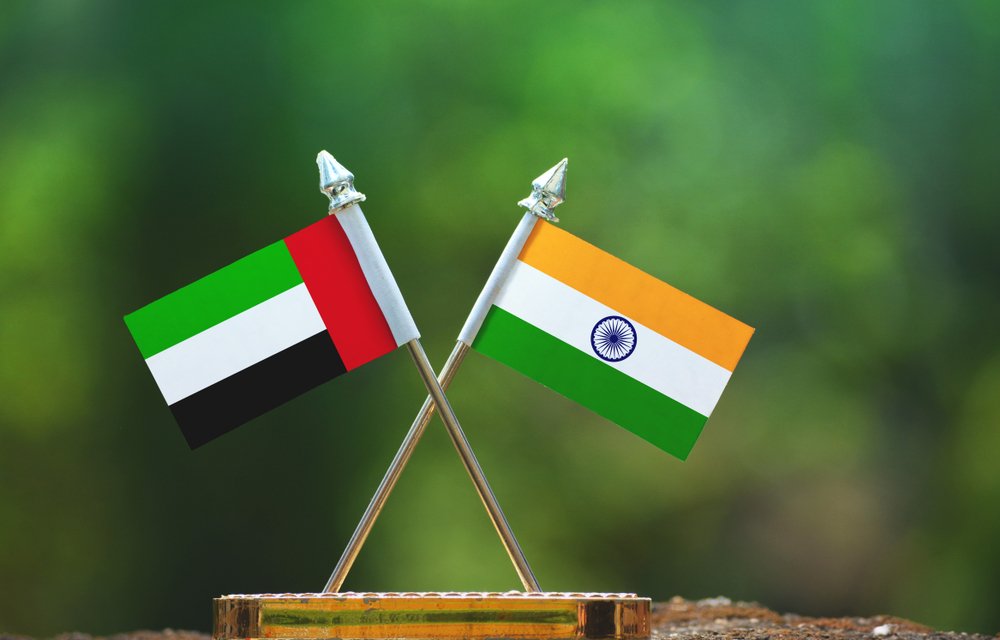The United Arab Emirates (UAE) has positioned itself as a global economic hub by fostering strong trade relations and strategic alliances through its Comprehensive Economic Partnership Agreements (CEPA). These agreements aim to boost economic growth, facilitate trade, and attract foreign investment while enhancing the UAE’s standing as a leading global business destination. As the country continues to expand its CEPA network, the impact on various industries, businesses, and overall economic development is becoming increasingly evident.
Strategic Vision Behind CEPA
The UAE’s CEPA strategy aligns with its broader economic diversification goals outlined in the “We the UAE 2031” vision. These agreements are designed to strengthen ties with key trade partners, eliminate trade barriers, and create new opportunities for businesses across multiple sectors, including manufacturing, logistics, technology, healthcare, and energy. By securing preferential trade terms, the UAE ensures a competitive advantage for its domestic industries while attracting global investors looking to leverage the country’s strategic location and business-friendly environment.
A critical aspect of CEPA agreements is their role in enhancing the UAE’s global trade positioning by ensuring seamless supply chains, improving digital trade facilitation, and increasing service exports. These partnerships also contribute to national employment opportunities by boosting sectors that demand specialized talent. By reducing dependence on oil revenues and reinforcing a non-oil economy, the UAE is setting a long-term framework for sustainable economic growth.

Key CEPA Agreements and Their Impact
The UAE has successfully signed and implemented several CEPA agreements with major global economies, including India, Indonesia, Israel, Turkey, and South Korea. Each of these partnerships plays a vital role in driving trade, fostering investment, and unlocking new market access. These agreements include significant tariff reductions, improved market access for goods and services, and strengthened economic cooperation across various sectors.
UAE-India CEPA
Signed in 2022, this landmark agreement has significantly increased bilateral trade between the two nations, with estimates showing a rise of over 30% in non-oil trade within the first year. The agreement has led to tariff reductions on 90% of goods traded between both nations, boosting exports of UAE-based products like petrochemicals, aluminum, and food products. Additionally, India’s pharmaceutical and textile industries have benefited from eased trade restrictions, fostering business collaborations and supply chain efficiencies.

UAE-Indonesia CEPA
This agreement, signed in 2023, focuses on enhancing trade flows, reducing tariffs, and fostering investment in critical sectors such as energy, the digital economy, and infrastructure. The UAE has committed to investing billions in Indonesian infrastructure and clean energy projects, supporting both nations in their sustainability efforts. In return, the UAE benefits from Indonesia’s vast market potential and growing middle-class consumer base.
UAE-Turkey CEPA
The CEPA agreement between the UAE and Turkey, effective since 2023, aims to boost bilateral trade to over $40 billion in the next five years. The deal focuses on expanding cooperation in advanced industries, logistics, and investment, while also reducing tariffs on a wide range of goods. Given Turkey’s strong manufacturing capabilities and the UAE’s role as a global trade hub, this agreement strengthens economic ties and facilitates the flow of goods and services more efficiently.
UAE-South Korea CEPA
This partnership is instrumental in expanding collaboration in high-tech sectors, including semiconductor technology, artificial intelligence (AI), and renewable energy. The agreement enhances supply chain integration between the two countries, allowing greater investment in research and development initiatives. South Korean companies benefit from easier access to the UAE market, while Emirati firms gain preferential treatment in South Korea’s competitive business landscape.
Economic Growth and Trade Expansion
CEPA agreements have led to a significant rise in trade volumes and foreign direct investment (FDI) inflows. By reducing or eliminating tariffs, businesses benefit from cost savings, increased market access, and an improved regulatory framework. This has made the UAE a prime destination for multinational corporations seeking to establish a foothold in the Middle East and North Africa (MENA) region.
One of the key benefits of CEPA agreements is their ability to promote trade diversification. Historically reliant on oil exports, the UAE has successfully transitioned towards a broader economic base, encompassing sectors such as fintech, e-commerce, logistics, advanced manufacturing, and tourism. By signing these agreements, the UAE has positioned itself as a leading international gateway for companies looking to tap into the broader Gulf Cooperation Council (GCC) and African markets.
Additionally, CEPA agreements play a vital role in strengthening small and medium-sized enterprises (SMEs), which form the backbone of the UAE economy. These agreements provide SMEs with improved access to international markets, enabling them to expand their operations and compete on a global scale. The agreements also include provisions to support digital trade, enabling businesses to engage in seamless cross-border e-commerce activities.
Challenges and Future Outlook
Despite the success of CEPA agreements, challenges remain in their implementation. Regulatory differences, compliance complexities, and global economic uncertainties can affect the seamless execution of these agreements. Some of the key challenges include:
- Regulatory Alignment: While trade agreements simplify tariff reductions, businesses still face challenges in navigating different regulatory frameworks and compliance requirements across partner nations.
- Global Market Volatility: Economic fluctuations, geopolitical tensions, and supply chain disruptions can impact trade flows, requiring flexible policies and adaptive strategies.
- Sector-Specific Adaptation: While larger corporations quickly adapt to CEPA benefits, SMEs may struggle with compliance and competition from international markets.
However, the UAE continues to address these concerns through diplomatic engagements, policy adjustments, and technology-driven trade facilitation. The implementation of digital customs clearance systems, blockchain-based trade verification, and AI-driven supply chain optimization are some of the steps being taken to enhance trade efficiency.
Looking ahead, the UAE aims to expand its CEPA network further, targeting agreements with key economies in Europe, Africa, and Latin America. The country is actively negotiating trade agreements with nations that complement its economic strengths and ambitions. The growing CEPA network is expected to contribute significantly to the UAE’s goal of achieving Dh4 trillion in foreign trade by 2030.
Additionally, the UAE is focusing on sustainability-led trade agreements, promoting green technologies and carbon-neutral trade initiatives. With global emphasis shifting towards climate-conscious business practices, future CEPA agreements are expected to include sustainability clauses that encourage investment in renewable energy, carbon capture, and eco-friendly logistics.
Conclusion
The UAE’s CEPA landscape reflects its commitment to economic growth, trade expansion, and investment attraction. By forging strong trade agreements with strategic partners, the UAE not only enhances its economic resilience but also solidifies its reputation as a premier global business hub. These agreements ensure that UAE businesses remain competitive on a global scale while fostering long-term partnerships that contribute to mutual economic prosperity.
As the UAE continues to expand its CEPA network, businesses in the region stand to gain from increased opportunities, streamlined trade processes, and enhanced market access. The future of the UAE’s trade landscape is promising, driven by innovation, diversification, and international collaboration. With a strong focus on sustainable economic policies and strategic global partnerships, the UAE is well-positioned to remain a powerhouse in global trade and investment for years to come.
Do follow Uae stories for more Updates
Understanding Abu Dhabi Toll Gate Timings: A Comprehensive Guide












